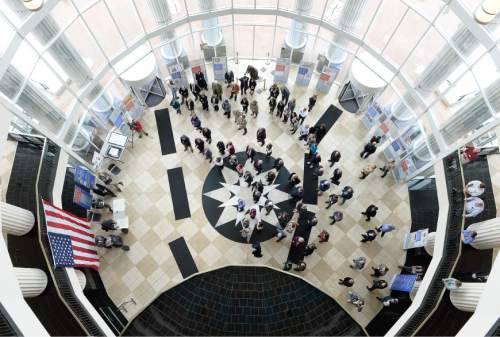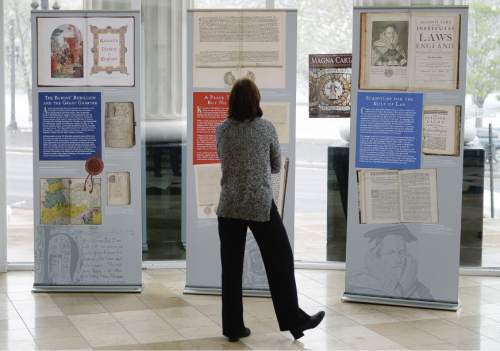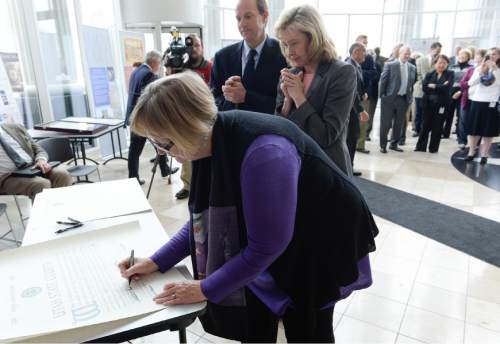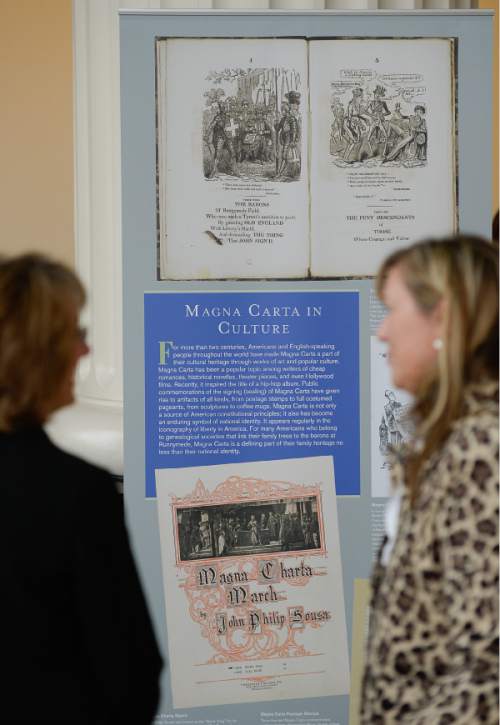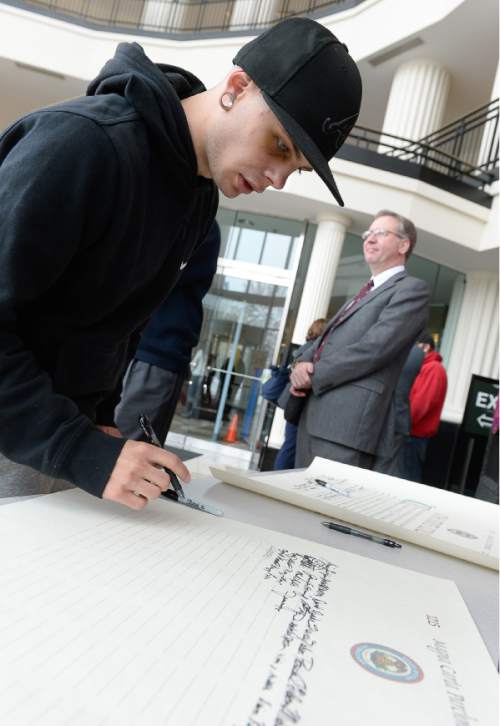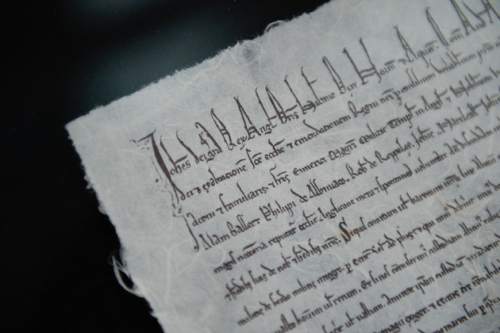This is an archived article that was published on sltrib.com in 2015, and information in the article may be outdated. It is provided only for personal research purposes and may not be reprinted.
Any Utahn who has ever been in trouble with the law can thank a squabble between English king and a pack of angry barons for inking an agreement that would become the blueprint for a legal system that ensures the right to a trial by a jury of peers.
A partial replica of that document — the Magna Carta — is in Utah this week as part of a traveling exhibit marking the 800th anniversary of its creation.
The exhibit, a project of the American Bar Association and the Law Library of Congress, was brought to Utah by the Utah State Bar. It will be on display through Friday at the Matheson Courthouse, 450 S. State Street in downtown Salt Lake City.
The Utah State Courts held a ceremonial signing of the replica document in the courthouse rotunda on Wednesday to mark the exhibit's display and thank the 1,000 members of the public who served as jurors in 3rd District Court cases last year.
"The principles to the Magna Carta planted a few seeds and because they did, we, today, enjoy some of our most precious freedoms, some of our most precious rights," Utah Supreme Court Chief Justice Matthew Durrant told those gathered.
Drafted in 1215, the Magna Carta grew out of a dispute between King John of England and a group of rebel barons seeking protection from illegal imprisonment and access to swift justice. The charter is said to have influenced the American colonists and the drafters of the U.S. Constitution and the American legal system.
"Today we have the privilege of living in a country where no one, however wealthy, is above the law and anyone, however weak, is invested with certain rights and can assert those rights in a court of law," Durrant said.
Among the event's other speakers were Court of Appeals Presiding Judge Fred Voros, 3rd District Court Presiding Judge Royal Hansen, 3rd District Juvenile Court Presiding Judge Dane Nolan and 3rd District Judge Keith Kelly.
West Valley City psychology student Jack Tuttle's interest in history and the criminal justice system drew him to the courthouse rotunda for the event. The 21-year-old said he wanted to see the exhibit so he could learn more about the transition between "tyrannical law to some form of democratic law" that the Magna Carta's drafter navigated.
"I think the fact that they came together so people could all benefit is amazing," said Tuttle said he is considering a career in forensic psychology. "It's interesting to see the glory behind the event of actually negotiating it and signing it. Pulling it off, I think, was a pretty big deal."
jdobner@sltrib


